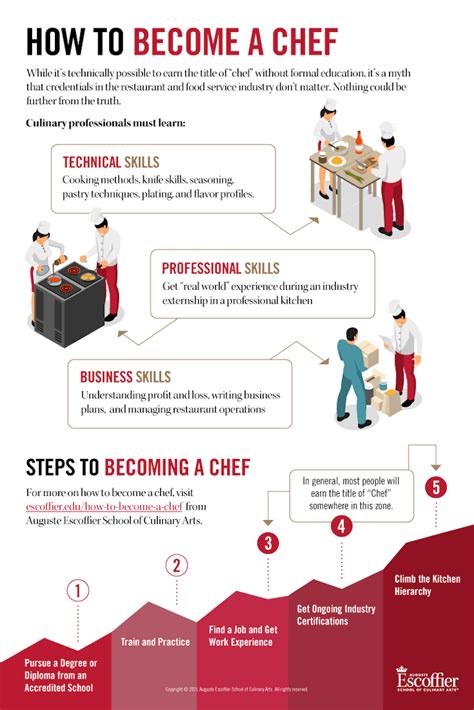Introduction
Becoming a head cook is a challenging but rewarding career goal. It requires a comprehensive understanding of culinary arts, as well as strong leadership and management skills. In this article, we will explore the knowledge level required to excel as a head cook.

Culinary Arts Knowledge
Food Preparation and Cooking Techniques
Head cooks must have a deep understanding of food preparation and cooking techniques. This includes skills such as:
- Knife handling
- Food preparation (e.g., chopping, slicing, sautéing, grilling)
- Cooking methods (e.g., baking, frying, steaming, braising)
- Food safety and sanitation
Recipe Development and Menu Planning
Head cooks are responsible for developing recipes and planning menus. They must:
- Understand food chemistry and pairings
- Create balanced and flavorful dishes
- Incorporate dietary restrictions and preferences into menu development
- Cost and portion food items accurately
Kitchen Management and Operations
Leadership and Management Skills
Team Management
Head cooks must be able to lead and motivate a team of kitchen staff. They must:
- Communicate effectively
- Delegate responsibilities
- Provide feedback and support
- Foster a positive and productive work environment
Kitchen Operations
Head cooks are responsible for the smooth operation of the kitchen. They must:
- Schedule staff
- Maintain appropriate inventory levels
- Manage budgets and track expenses
- Ensure compliance with health and safety regulations
Financial Management
Head cooks must have a basic understanding of financial management. They must be able to:
- Prepare budgets
- Track income and expenses
- Control food and labor costs
- Maximize profitability
Other Valuable Knowledge
Kitchen Design and Equipment
Understanding kitchen design and equipment is essential for efficient kitchen operations. Head cooks must be familiar with:
- Kitchen layout and workflow
- Types and uses of kitchen equipment
- Maintenance and upkeep of equipment
Food Trends and Innovation
Head cooks must stay up-to-date on food trends and innovations. They can do this by:
- Reading industry publications
- Attending conferences and workshops
- Experimenting with new ingredients and techniques
Sustainability and Environmental Practices
Head cooks should be aware of sustainability and environmental practices in the kitchen. This includes:
- Reducing food waste
- Using energy-efficient equipment
- Sourcing sustainable食材
- Implementing eco-friendly waste disposal practices
Tips and Tricks
- Enhance your culinary skills through continued education, workshops, and certifications.
- Seek mentorship from experienced head cooks or chefs.
- Build a solid network within the culinary community.
- Stay organized and efficient in the kitchen.
- Foster a positive and collaborative work environment.
- Keep up with the latest food trends and innovations.
Common Mistakes to Avoid
- Underestimating the importance of leadership and management skills.
- Trying to do everything yourself instead of delegating.
- Neglecting to stay up-to-date on food trends and innovations.
- Not paying attention to financial management.
- Failing to prioritize food safety and sanitation.
Why Knowledge Matters
Having a high level of knowledge and skills is crucial for head cooks to succeed. It enables them to:
- Deliver exceptional culinary experiences
- Lead and motivate their teams effectively
- Manage kitchen operations efficiently
- Control costs and maximize profitability
- Stay competitive in the industry
Benefits of Advanced Knowledge
Pursuing advanced knowledge and skills can provide numerous benefits, including:
- Increased job opportunities and career advancement potential
- Higher earning potential
- Enhanced reputation and credibility
- Greater job satisfaction and fulfillment
Conclusion
Becoming a head cook requires a comprehensive knowledge level spanning culinary arts, leadership, management, and other valuable areas. By acquiring and continuously expanding this knowledge, head cooks can unlock their full potential, lead successful kitchen operations, and create unforgettable dining experiences for their guests.
